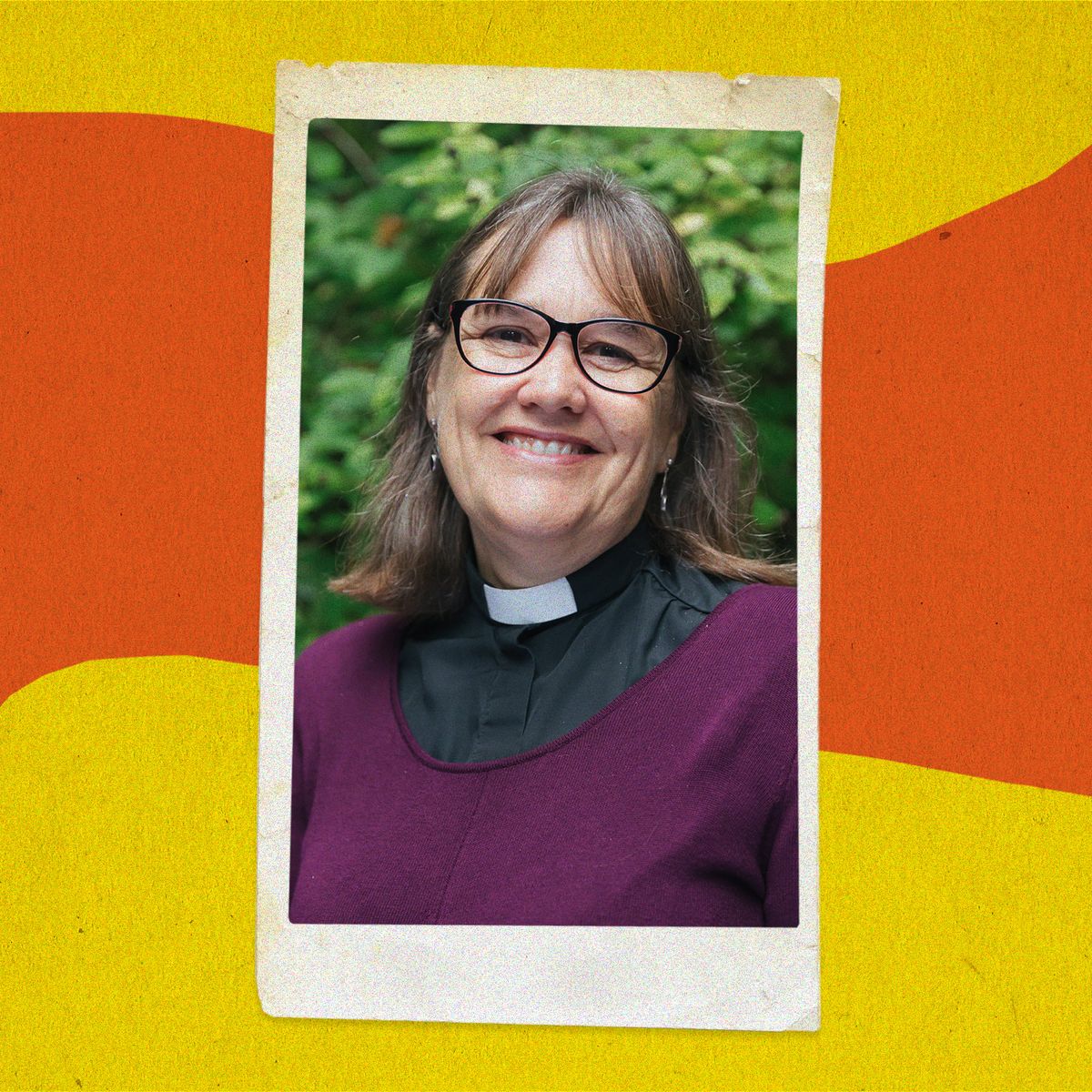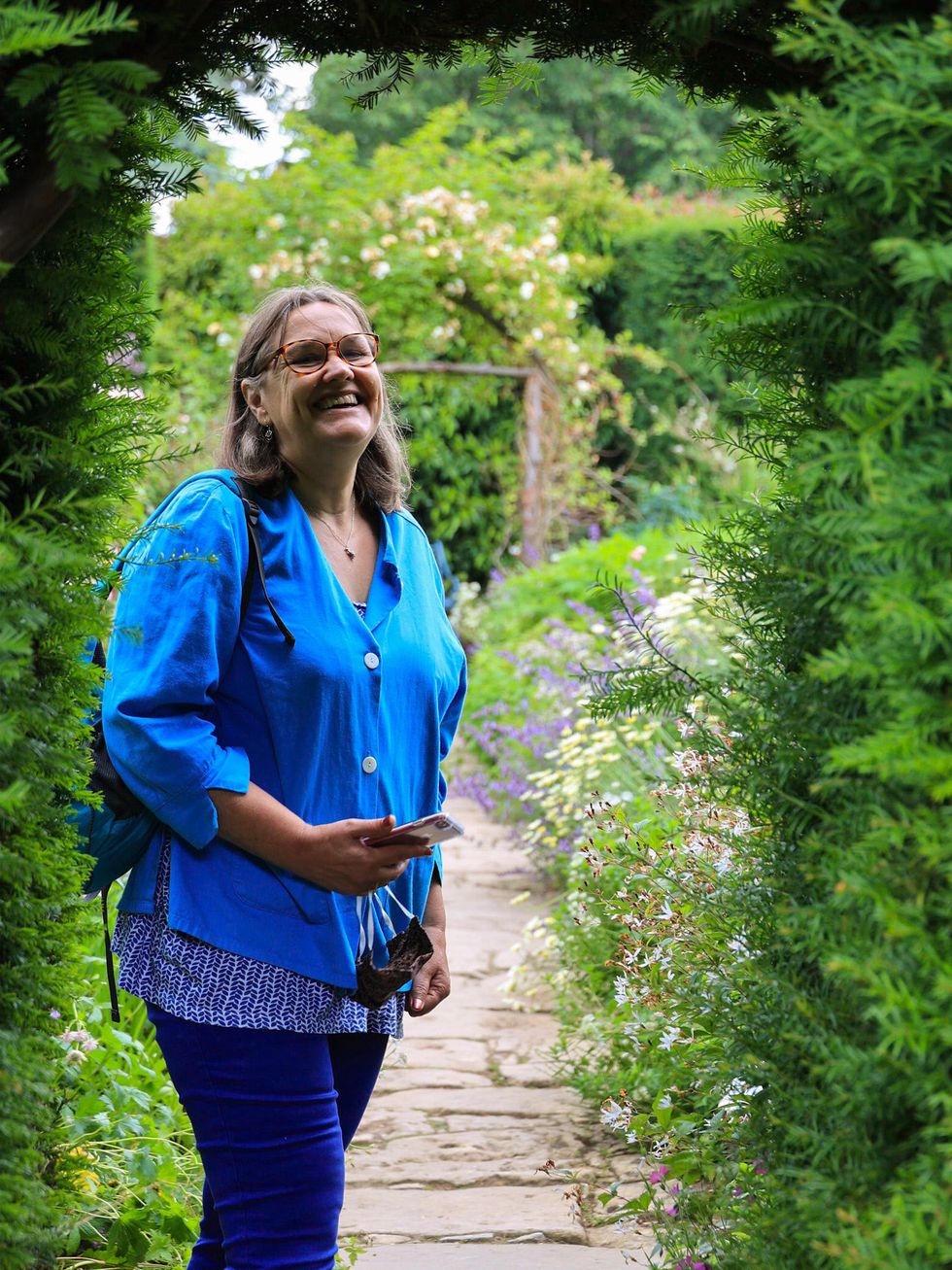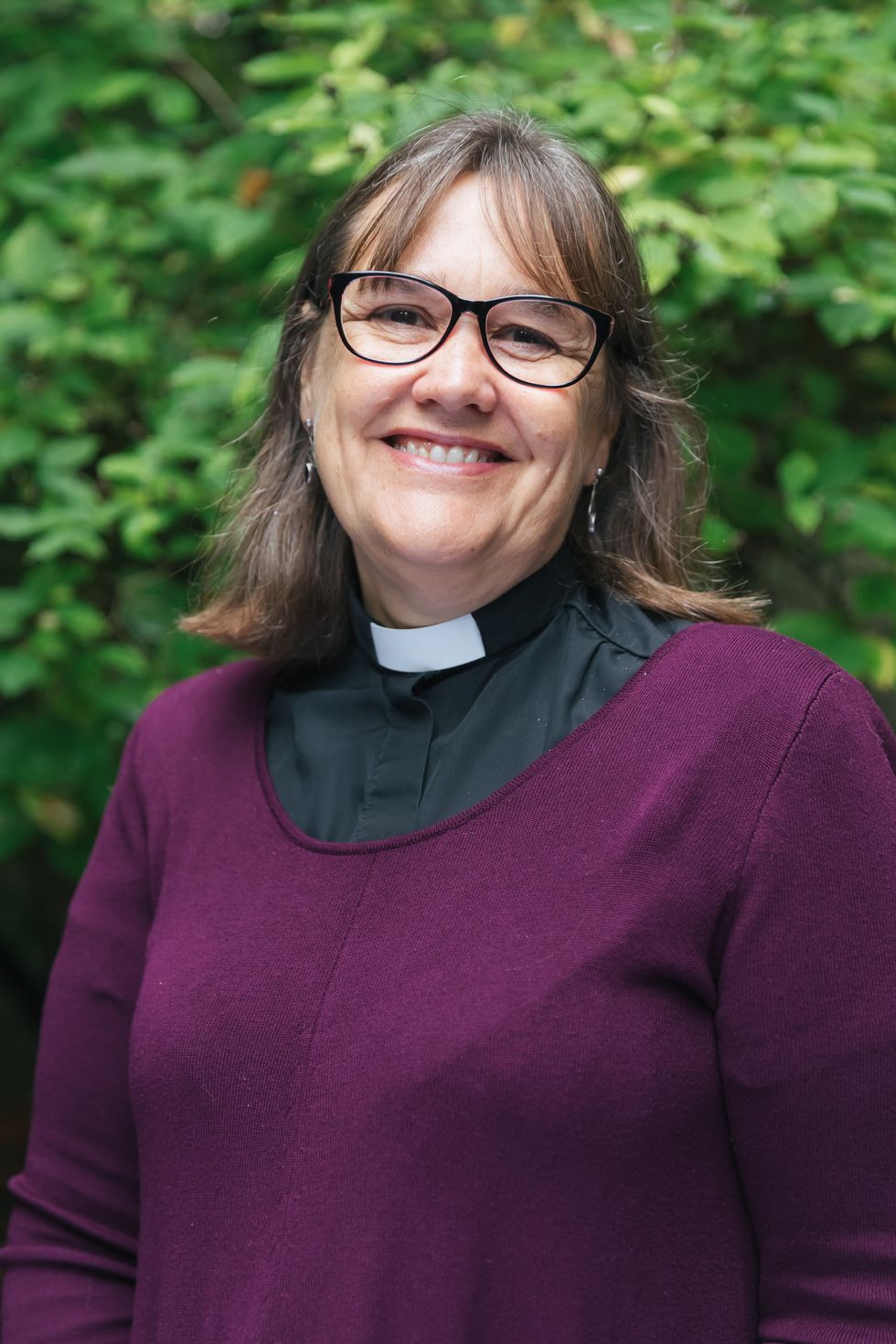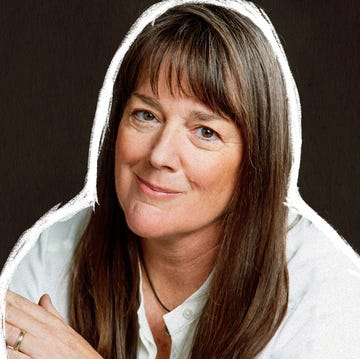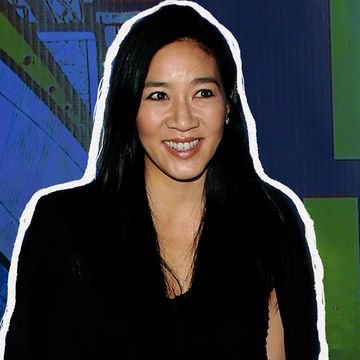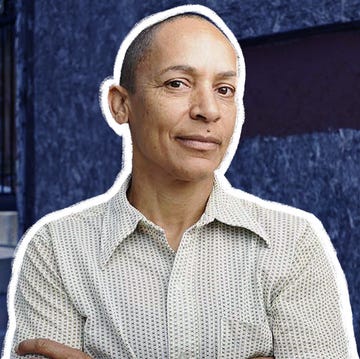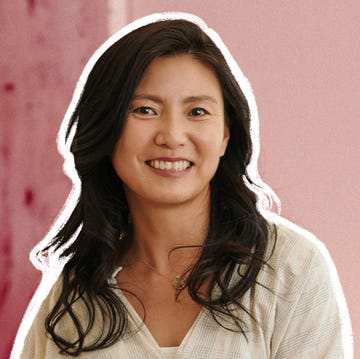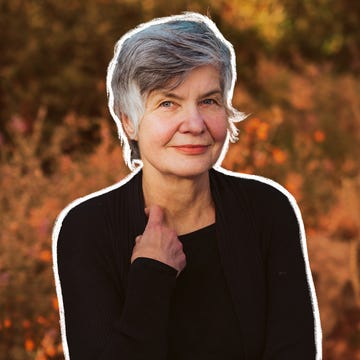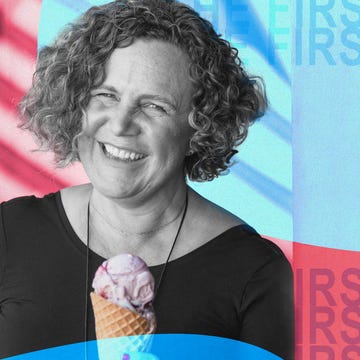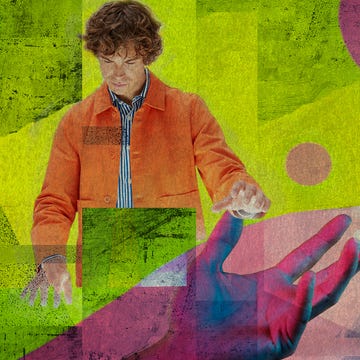In Shondaland’s Joy Makers series, we spotlight creative curators who operate behind the scenes to inspire moments of elation. Their handiwork illuminates pathways to delightfulness, and their one-of-a-kind insights help us find happiness in our own lives. In this month’s installment, we explore the joy of spirituality.
During the pandemic, many people found themselves enraptured by all types of activities and hobbies during lockdowns, from baking to crocheting. Emma Percy, however, was devoted to bingeing every episode of Queer Eye. “It was full of joy,” the practical theologian and priest says. “There was something about that and the kindness. People who could rejoice in life and, in doing so, had this capacity to pull others up.”
It makes sense why Percy, who recently moved from her post as a chaplain at Oxford University after 17 years to become a senior lecturer in feminist theology and ministry at the University of Aberdeen. She felt connected to a show devoted to helping others see their lives in a new way. The spiritual leader has spent her life and career doing just that.
From college campuses and christenings to weddings and funerals, her job is to see people — whether they believe in a higher power or not — through some of the happiest and hardest times of their lives. “I get a walk-on part in many, many people’s lives,” she jokes, “and if that walk-on part is a part where I helped [them] focus on something in a good way, that’s good.”
Percy is not your average spiritual leader. She was one of the first women ordained as a priest in the Church of England, in the spring of 1994. “The Church of England took a lot longer than America to ordain women,” she explains, “and I was part of the first wave, so there were a whole load of us. We had been people working for the church, not allowed to have full ministry, so that was very exciting.”
In the 1980s, when Percy first expressed that she wanted to become a preacher, she was told by the men in her church that she couldn’t because women were not allowed. “Margaret Thatcher had just become our prime minister,” Percy recalls. “That was hard to get my head around.” When she was faced with turning away or pushing forward, Percy chose the latter. “I had to think, ‘Do I still want to be involved in this church if this is what it thinks?’ In the end, I thought, ‘Yep, I’ll be part of changing it from the inside.’”
Percy continues to combat sexism and work toward inclusivity in the church. For instance, she publicly refers to God as “she” to broaden people’s understanding and experiences of God. “I was interested in why people feel uncomfortable if we do,” Percy says. “Clearly, the Bible spends a lot of time in the Old Testament telling you that God isn’t a he. God’s not a man.”
The most important aspect of a chaplain’s life, Percy says, is togetherness. “You are one of the people who helps to keep that sense of community.” She doesn’t simply wait for people in her surroundings to approach her; she actively reconnects with people and checks in on their well-being. “I remember someone saying to me, ‘If you can actually go and see someone rather than just pick up the phone or send an email, do that.’ So, I do a lot of going and seeing how people are.”
Simple conversations usually bring Percy the strongest sense of meaning. “It’s those conversations that actually help to build up community,” she says, “and you get to know people. When you’ve gotten to know people, when they feel that they just want somebody to talk to about something, then you’re much more accessible.”
If someone wants to discuss faith with Percy, they do. If not, she listens and later prays for them in private on her own. “Oftentimes, the people who come and see me are not people of faith, but they trust me,” Percy says. “It’s interesting [because] a lot of people who don’t necessarily believe like to know that you pray for them. They can understand that that’s caring.”
Spiritual joy, Percy says, is not cheery denial pretending there is no pain, distress, or sadness. It isn’t avoidant of reality and life’s problems or a spontaneous emotional reaction. It is a deliberate choice. “It’s about having two perspectives,” she says, “at the same time.”
Percy’s empathy has helped her through some of the most difficult times of life: traumatic experiences, health scares, and the loss of loved ones. Six years ago, Percy was nursing her younger brother through the last years of his life. “He was only 49, and it was awful,” she remembers. “It was sad, but it didn’t mean that we couldn’t have some joyful times in it.”
Percy and her brother laughed and smiled together in the face of tragedy, and it helped them get through it. “Joy and gladness strengthen you,” she says. “That isn’t saying bad things don’t happen. It’s saying, ‘What are the resources I can use so that when the bad things happen, they don’t overwhelm me, knock me down, and send me down a spiral of negativity?’”
At the core of Percy's faith and work is kindness, thoughtfulness, and active listening. They ultimately all have one thing in common: the present. What faith has provided her, and what she hopes to give to others, is the perception of life as a gift. In believing that the good things in life come from God, she has embraced the power of gratitude no matter where or when it happens. “It’s about realizing that the ordinary every day,” she says, “is often where life is.”
Emma Percy’s Three Tips for Embracing Spiritual Joy
Trust the universe
“If you can find a way of having a sense of trust in God — however you want to understand God — there is a sense that there is a loving benevolence that cares for you.”
Be present
“Pay attention to the good things. We need to savor them because our brains need to process them. Every time people say something nice, when you see something nice, just pause and give thanks.”
Widen your perspective
“Find beauty, and pay attention to it. When we see things that are lovely like nature, art, or anything, it takes us slightly out of ourselves. They open us up.”
Mia Brabham is a staff writer at Shondaland. Follow her on Twitter at @hotmessmia.
Get Shondaland directly in your inbox: SUBSCRIBE TODAY
